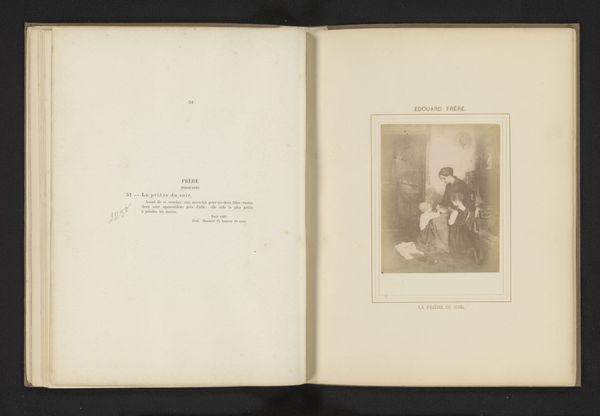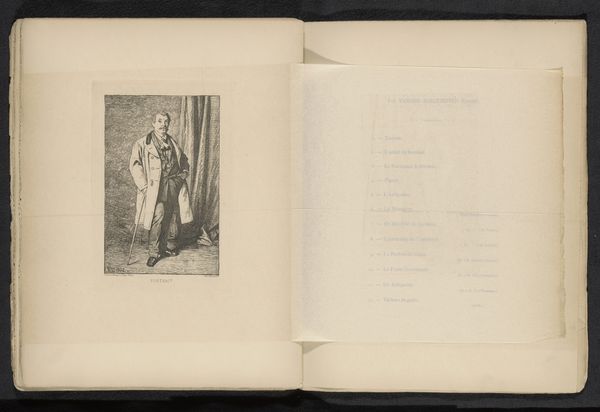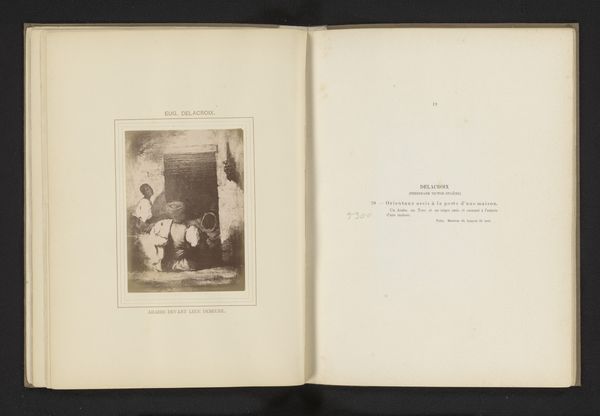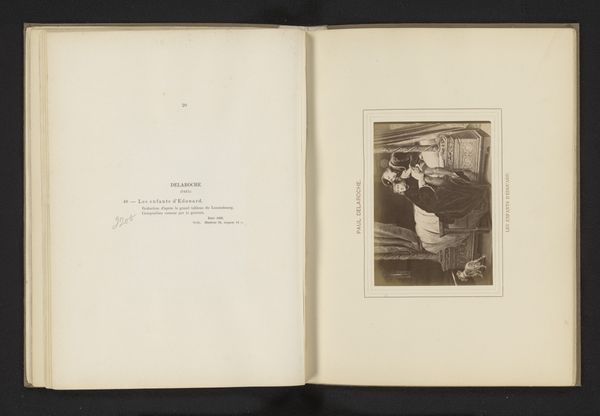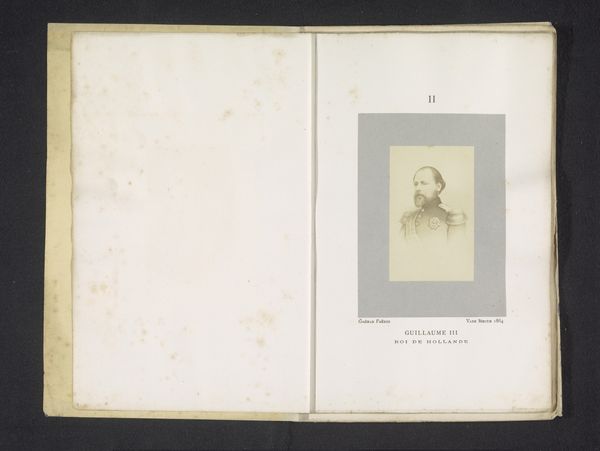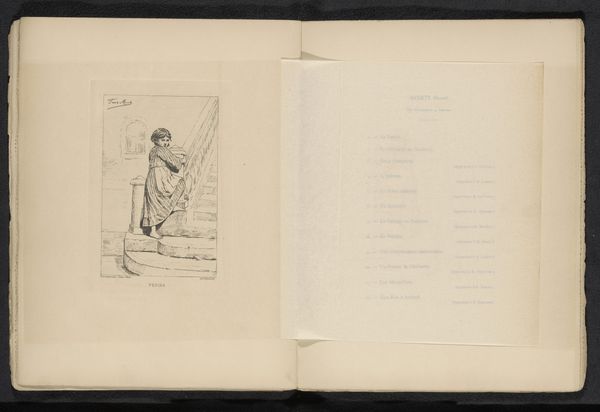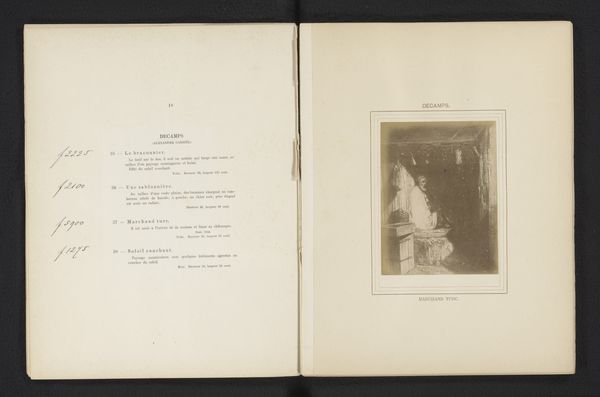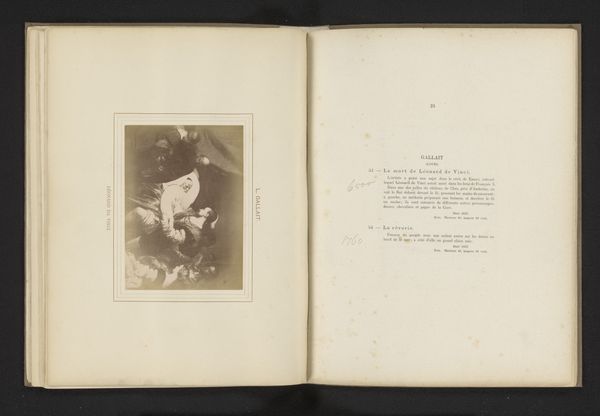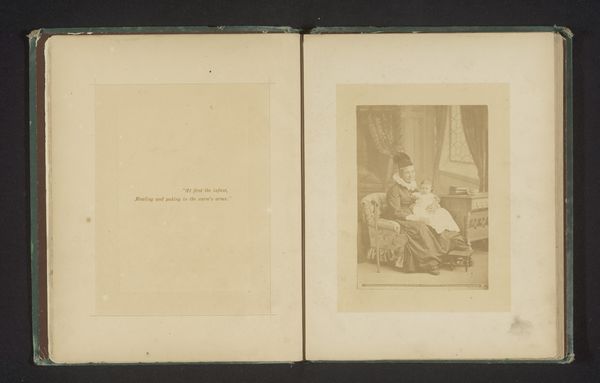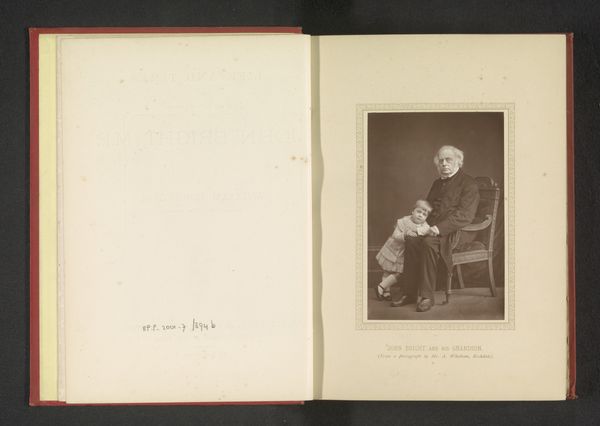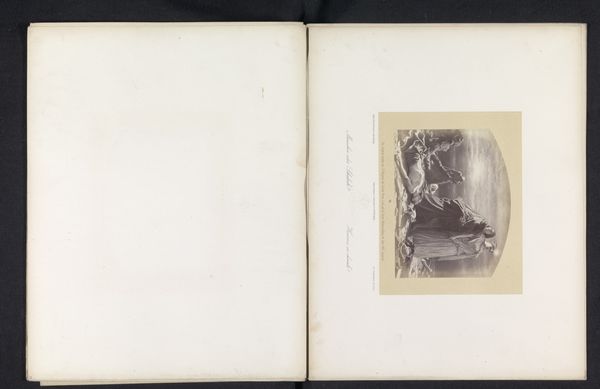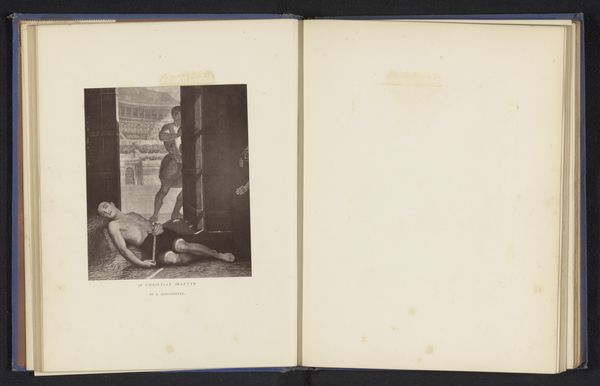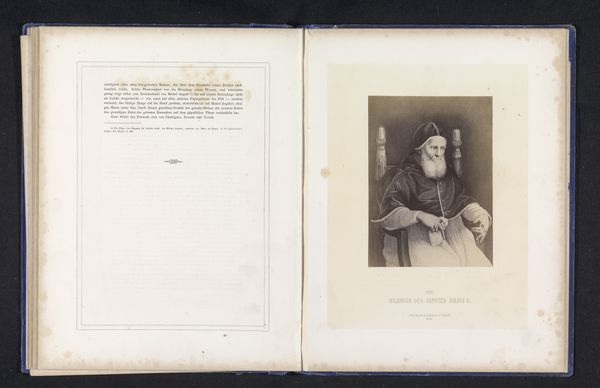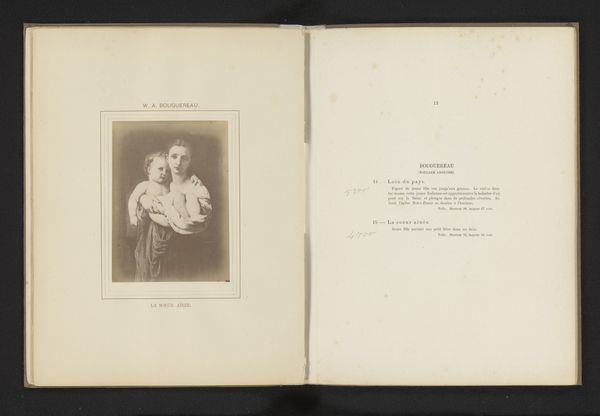
print, ink, pen
portrait
medieval
book
ink
pen
history-painting
Dimensions: height 103 mm, width 81 mm
Copyright: Rijks Museum: Open Domain
This print of Saint Augustine and his mother was created by an anonymous artist. It is a lithograph, a printmaking technique that relies on the chemical repulsion of oil and water. The image is drawn on a stone or metal plate with a greasy substance, and then the stone is wet. When ink is applied, it adheres only to the greasy areas, which is then transferred to paper. Lithography was a relatively new technology in the 19th century, and it allowed for the mass production of images. Consider the amount of work involved in the production process of creating many of these prints. By understanding lithography's process, the artist could make nuanced tonal gradations. The lithographic process, and the skilled labour involved, give it a soft, almost ethereal quality, appropriate to the religious subject. It’s through understanding the material qualities of lithography that we can appreciate how this print successfully conveys a sense of divine presence.
Comments
No comments
Be the first to comment and join the conversation on the ultimate creative platform.
